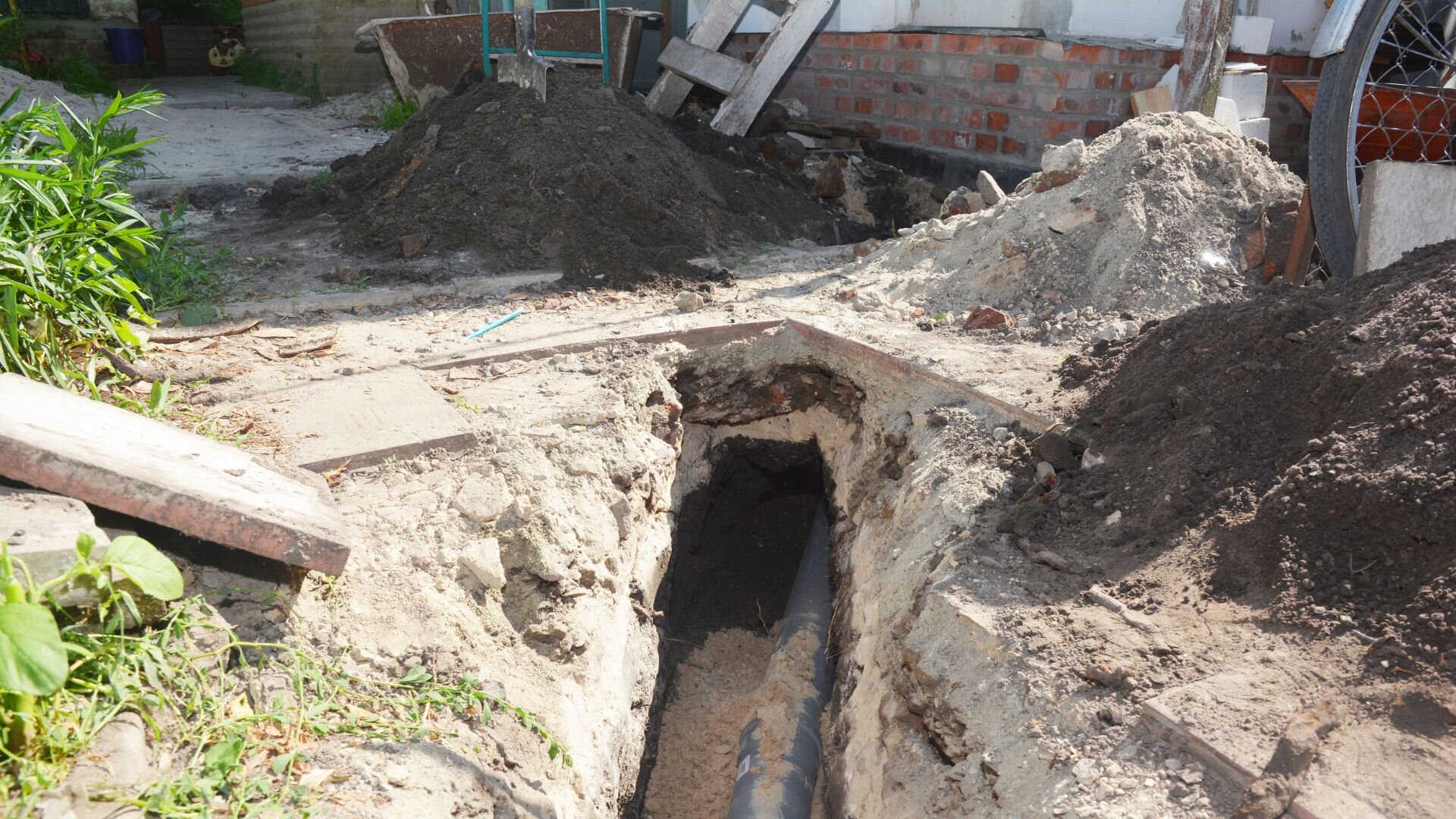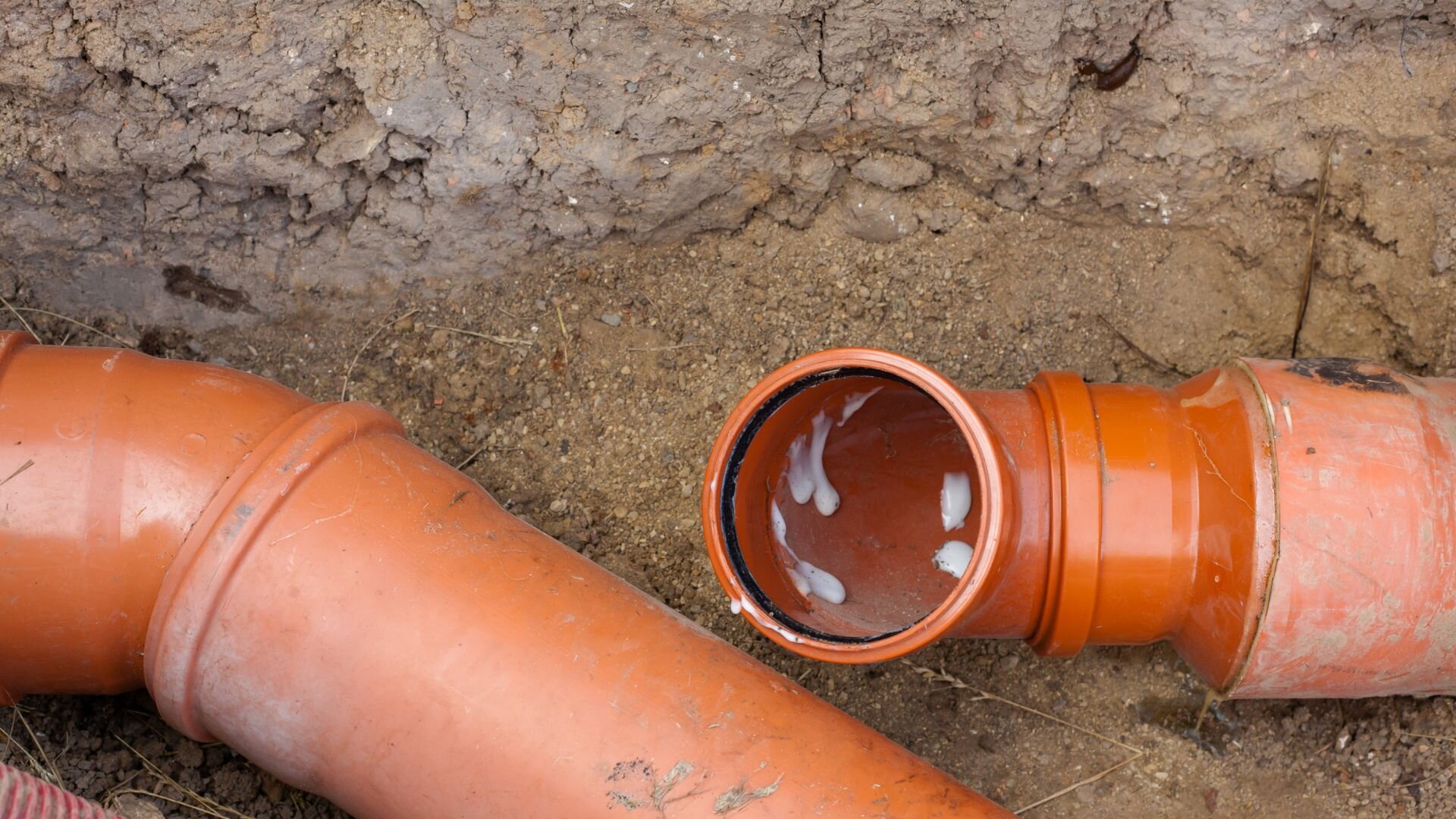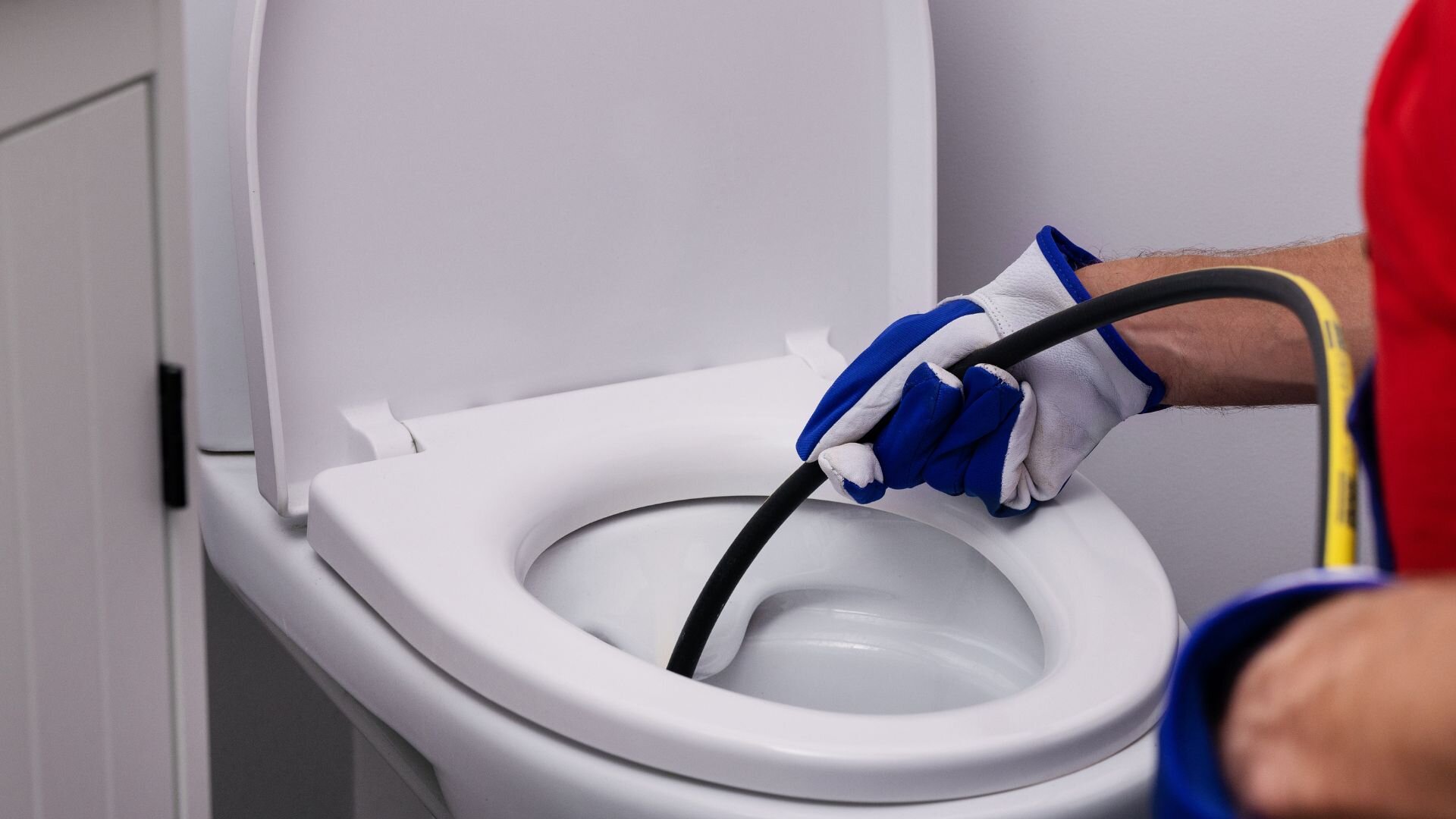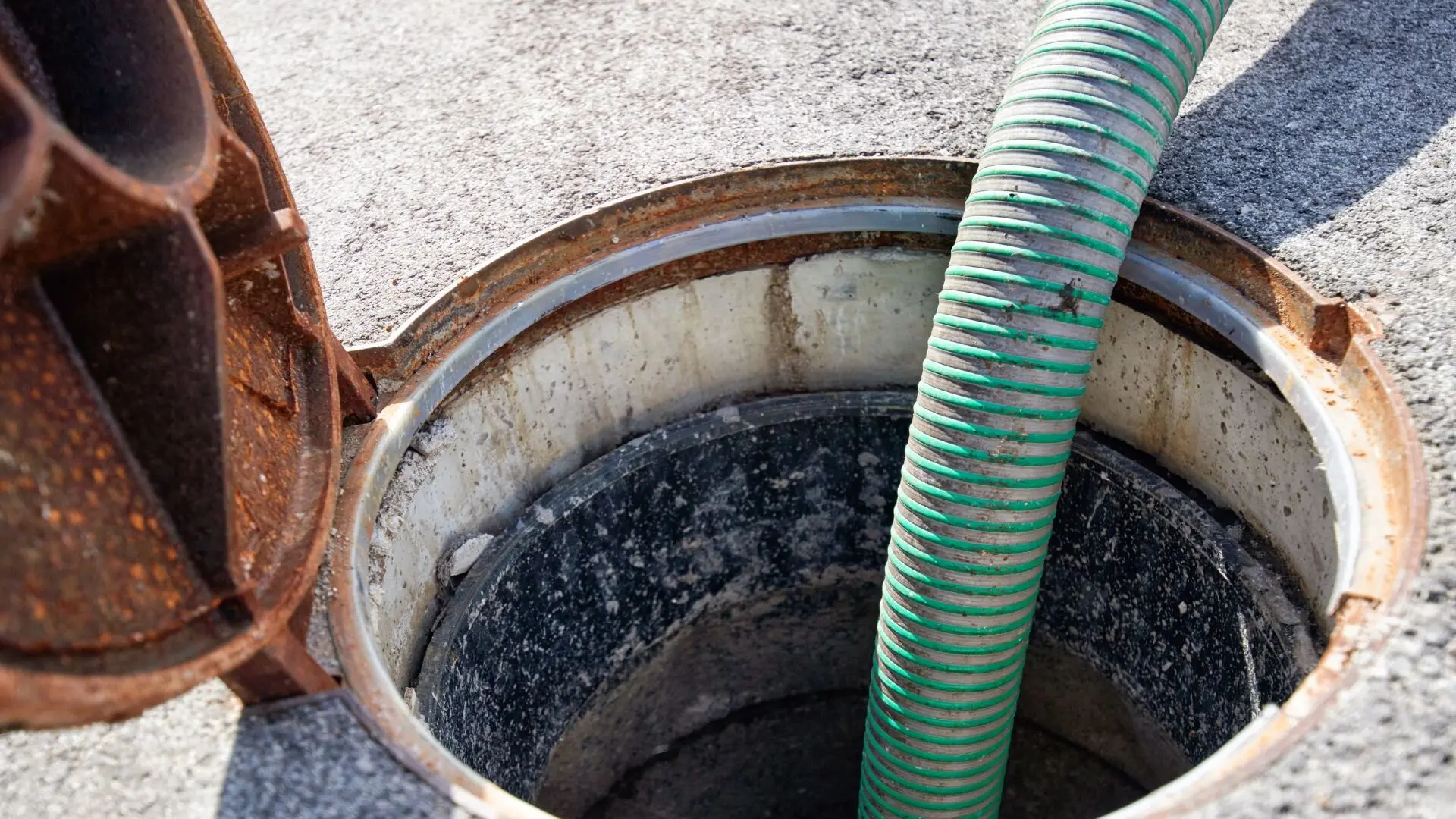Many homeowners deal with the hassle of clogged drains, sewer lines, and drain pipes due to poor disposal habits, tree root intrusion, grease accumulation, and soap scum build-up. Tossing items such as feminine hygiene products, paper towels, and solid waste down toilets or sinks can cause serious drainage and sewer blockages.
Keeping your sewer lines clear isn’t just a nice idea; it’s essential. Regular drain cleaning, rooter services, and plumbing inspections can spot problems early, helping you avoid major clogs or backups. Also, adopt smart disposal habits—use a garbage disposal for food scraps and steer clear of chemical drain cleaners that can harm your pipes in the long run.
Overlooking minor clogs or postponing septic tank upkeep can worsen the issue, resulting in clogged sewer lines and sink drains that demand extensive and costly repairs. Homeowners who prioritise sewer line maintenance and adopt preventative habits are more likely to enjoy a smooth-running plumbing system and dodge the headache of clogged drains or sewer lines.
Let’s prevent a clogged drain in your sewer line together!
How to Prevent Sewer Line Blockages

Regular Inspections and Maintenance
Preventing sewer line blockages and clogged drains requires a proactive approach. Regular sewer line inspections by a professional plumber are crucial for identifying potential issues before they escalate into major clogs or backups. During these inspections, experts can assess the condition of drain pipes, check for tree root intrusion, and recommend appropriate maintenance measures.

Backflow Prevention Devices
Installing a backflow prevention device is highly recommended to prevent sewage backup into your home, which can pose significant health risks and lead to costly repairs. These devices act as a barrier, ensuring that wastewater flows in the correct direction and doesn’t enter your plumbing system.
Hydro-Jetting and Snaking
Hydro-jetting blasts high-pressure water to clear stubborn blockages, whereas snaking employs a flexible auger to break up and remove obstructions from drain pipes. Both methods effectively deal with clogs from soap scum, hair, and other debris in sinks.

Proper Disposal Practices
Avoid flushing non-dissolvable items like feminine hygiene products, paper towels, and solid waste down toilets or bathroom sinks, as they can quickly lead to clogged sewer lines and drain pipes.
Utilising garbage disposal for food scraps and properly disposing of cooking oils and grease can also help prevent clogs in your plumbing system.
Gutter and Downspout Maintenance
Additionally, regular cleaning of gutters and downspouts can play a significant role in preventing sewer line blockages. Debris, leaves, and other materials can accumulate in these areas and eventually find their way into the sewer line, causing clogs and backups. Ensuring your gutters and downspouts are clear and functioning correctly can help maintain a free-flowing sewer line.
Proper Disposal Practices
Understanding what items should and should not be flushed down drains or toilets is your first step to avoiding potential blockages in your home’s entire sewer system and sewer pipes.
Firstly, refrain from flushing solid waste, feminine hygiene products, paper towels, and other non-dissolvable items down the toilet or bathroom sink. These items can quickly accumulate and cause severe clogs in drain pipes and sewer lines, leading to costly repairs and potential sewage backups. Even excessive toilet paper can contribute to clogged sewers over time.
Instead, consider investing in garbage disposal for your kitchen sink and utilise it responsibly to dispose of food scraps.
It’s also advisable to avoid using chemical drain cleaners, as these harsh products can corrode and damage your pipes over time, potentially leading to leaks or breaks. Instead, opt for safer, environmentally friendly alternatives or seek professional assistance clearing persistent clogs.
Tree Root Intrusion Prevention
Tree root intrusion is one of the most persistent threats to sewer lines and drains. Tree roots are naturally attracted to the moisture and nutrients found in sewer lines, and they can infiltrate and damage these pipes, leading to clogged drains, clogged sewer lines, and even breaks in the main sewer line.
To prevent clogged drains and maintain a sewer line clear, you need to schedule regular inspections and root-cutting services. Professionals can use specialised cameras to identify root intrusion and take appropriate measures to cut back the roots and clear the affected areas.

In addition to regular maintenance, there are preventative measures you can take to discourage root growth near your sewer lines. Installing root barriers or applying copper sulphate treatments can help deter roots from growing and infiltrating your pipes, reducing the need to fix a leaking sewer line caused by damage.
Plan wisely when planting new trees or shrubs by considering their mature root systems. Avoid planting them too close to your sewer lines to prevent damage or infiltration by roots, particularly with corroded pipes, as this can lead to costly repairs. If your system already includes corroded pipes, replacing them promptly is vital to prevent further issues and ensure your plumbing’s longevity.
While tree roots are a common culprit for clogs, neglecting basic drain care can also lead to problems. Pouring grease, coffee grounds, or food particles down sink drains can cause buildups and blockages over time, potentially affecting the water supply. Taking these preventative steps not only helps maintain your system but also protects against future leaks and unnecessary disruptions.
Not Sure What To Do? Speak To A Professional Plumber!
Don’t hesitate to seek professional assistance if you’re unsure about implementing these preventative practices or suspect sewer line issues. Fixed Today, a trusted and experienced plumbing service provider in Sydney, offers expert advice and services to help homeowners maintain clear sewer lines and a well-functioning plumbing system.
Our licensed plumbers can conduct comprehensive inspections, perform maintenance rooter cleaning, and recommend tailored solutions to address your specific needs.
By prioritising preventative measures and partnering with reputable professionals like Fixed Today, you can ensure the longevity and optimal performance of your home’s sewer system, ultimately saving you time, money, and countless headaches in the long run. Call us today and let our team help you clear your blocked sewer line!
Sewer Line Clog FAQs
What are the common causes of sewer line clogs?
Sewer line clogs can occur for various reasons, such as the accumulation of debris, grease, tree roots invading the pipes, or the improper disposal of non-biodegradable items down the drain. It’s important to be mindful of what goes into your drains to prevent clogged sewer lines.
How can I maintain a healthy drainage system and prevent sewer line clogs?
To maintain a healthy drainage system, it is essential to adopt preventative practices. Regularly clean your drain pipes using enzyme cleaners or flushing hot water down the drains monthly. Avoid flushing wipes, paper towels, or other non-flushable items, as they can contribute to clogs. Additionally, consider scheduling an annual rooter cleaning to prevent serious clogs in the main sewer line.
Are there any specific precautions when it comes to toilet paper usage to avoid sewer line clogs?
To prevent sewer line clogs, it is advisable to use toilet paper designed to break down easily in water. Look for products labelled as "septic-safe" or "biodegradable." Avoid using excessive amounts of toilet paper in a single flush. Avoid flushing other non-flushable items like wet wipes, as they can accumulate and cause blockage in the sewer lines.
How can septic tank maintenance help prevent sewer line clogs?
Regular septic tank maintenance is crucial for preventing sewer line clogs. Have your septic tank inspected and pumped at least every three to five years, depending on usage and tank size. Proper maintenance ensures that solids do not build up and flow smoothly through the drainage system, reducing the risk of clogs and backups in the sewer lines.
What are enzyme cleaners, and how can they help keep drains clear?
Enzyme cleaners are specialised cleaning products that contain natural enzymes capable of breaking down organic waste in drains. These cleaners help to clear build-up and prevent clogs by breaking down substances like food particles, grease, and soap scum. Regular use of enzyme cleaners, typically once a month, can help maintain clear drains and prevent sewer line clogs.














